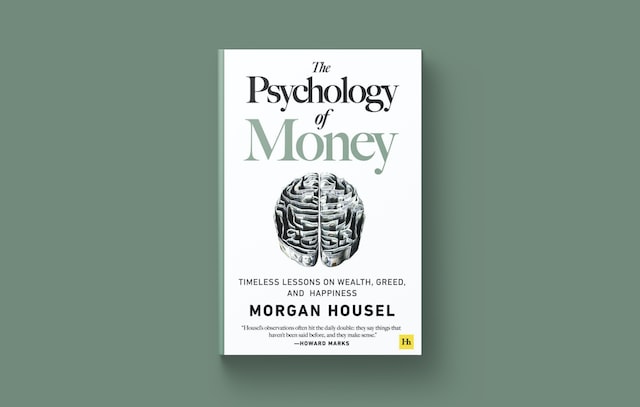The "The Psychology of Money" by Morgan Housel is a financial masterwork that goes beyond conventional finance literature. With this book review submission, I would like to express that Morgan Housel takes readers on an engrossing trip through the interesting nexus between personal money and human behavior.
The book's approachability is one of its advantages. Housel skillfully condenses intricate ideas into readable stories so that people with no background in finance can understand them. He emphasizes how crucial it is to comprehend the psychological foundations of money management, stressing that behavioral biases and emotional reactions play a significant role in determining financial success in addition to intelligence and market knowledge.
Recognizing the profound psychological influence on financial decisions is at the heart of Housel's argument. He examines the idea of "getting rich slowly," dispelling the fallacy of success in a flash and promoting perseverance, self-control, and long-term planning. He emphasizes the significant influence of little, regular acts over time by illuminating the concept of compounding through captivating tales and real-world situations.
In addition, Housel challenges the myth of rational decision-making by emphasizing the widespread impact of emotional responses and cognitive biases on financial behavior. He explains how people frequently give in to overconfidence, anchoring bias, and herd mentality, which can result in poor investing judgments. Housel helps readers identify and lessen the impact of these biases by clarifying them and their effects, which promotes a more responsible and knowledgeable approach to money management.
The historical perspective of "The Psychology of Money" is another important feature. Incorporating historical accounts with financial insights, Housel provides a wealth of knowledge derived from historical occurrences and economic processes. He highlights enduring realities about human nature and market behavior by using examples from the 17th-century Tulip Mania to the late 20th-century Dot-Com bubble. These examples highlight the cyclical nature of booms and busts and the foolishness of speculative fervor.
In addition, Housel stresses the value of flexibility and humility in negotiating the financial world's challenges. He promotes a philosophy of constant learning, adaptability, and probabilistic thinking in place of the hubris of forecasting and the delusion of control. People can develop resilience and deal more calmly with the inevitable market swings by accepting uncertainty and reinterpreting failures as chances for improvement.
Housel investigates how our views about money affect society as a whole in addition to individual behavior. He examines the conflict between immediate and delayed gratification, pointing out the trend in society towards consumerism and instant fulfillment. In a time of ostentatious consumerism and FOMO (fear of missing out) due to social media, he exhorts readers to reconsider their principles and give lasting contentment a higher priority than transient pleasures.
To sum up, "The Psychology of Money" provides a thorough examination of the relationship between financial decision-making and human psychology. By combining psychological insights, historical background, and gripping stories, Morgan Housel gives readers priceless advice for sifting through the intricacies of the financial world. This book is a timeless resource for developing financial resilience, prudence, and perspective in a constantly shifting financial environment, regardless of experience level.
#PsychologyOfMoney #MorganHousel



